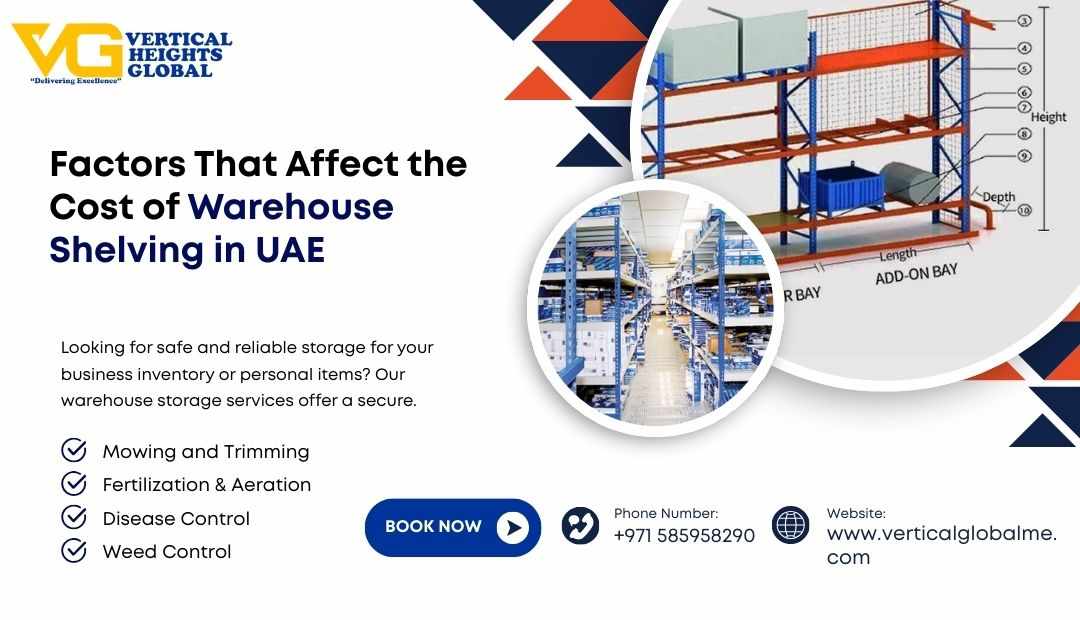Efficient storage is one of the most critical aspects of running a successful warehouse. The way you organize and store products directly affects productivity, space utilization, and safety. In Dubai’s fast-growing logistics and industrial sector, businesses often face a common question: Should you invest in custom warehouse shelving or standard shelving systems?
Both options have their strengths and weaknesses. Understanding these differences will help you make an informed decision that aligns with your budget, operations, and future growth.
Understanding Warehouse Shelving in Dubai
Warehouse shelving in Dubai has evolved beyond simple racks and storage units. With industries like e-commerce, retail, automotive, and manufacturing booming, the demand for durable, high-capacity, and efficient storage systems is rising.
Two main types dominate the market:
Standard warehouse shelving systems (pre-designed, widely available)
Custom warehouse shelving solutions (tailor-made to specific operational needs)
Both can work well, but the right choice depends on your inventory profile, warehouse layout, and expansion plans.
What is Standard Warehouse Shelving?
Standard shelving refers to pre-engineered storage systems that are readily available and widely used. These include pallet racking system, boltless racks, and modular shelving units.
Pros of Standard Shelving
Cost-Effective – Pre-designed shelves are more affordable upfront and ideal for businesses on a budget.
Quick Installation – Easily sourced and installed, minimizing downtime in operations.
Scalable – Can be added or removed as business needs change without extensive redesign.
Proven Designs – Widely tested and compliant with common safety standards in Dubai.
Cons of Standard Shelving
Limited Customization – Not ideal for irregular product sizes or unique storage requirements.
Space Constraints – May not fully utilize awkward warehouse layouts or vertical spaces.
Generic Aesthetic – Lacks branding opportunities or workflow-specific design elements.
What is Custom Warehouse Shelving?
Custom shelving is designed specifically to meet the operational requirements of your warehouse. This could involve unique dimensions, special load-bearing capacities, or even integrating automation.
Pros of Custom Shelving
Tailored to Your Needs – Maximizes every inch of available space and fits unusual product dimensions.
Improved Efficiency – Designed around your workflow for faster picking and storage operations.
Optimized Aesthetics & Branding – Can incorporate company colors, ergonomic designs, and branding elements.
Future-Proofing – Built with scalability and future automation in mind.
Cons of Custom Shelving
Higher Initial Cost – Custom design and fabrication involve a higher upfront investment.
Longer Lead Times – Design, manufacturing, and installation take more time compared to standard racks.
Specialized Maintenance – Repairs or replacements may require custom components.
Pallet Racking Systems: A Key Component
For many warehouses, pallet racking systems remain the backbone of storage. These racks allow palletized goods to be stacked vertically, maximizing space efficiency and compatibility with forklifts.
Whether you choose standard or custom shelving, pallet racking often complements the system. In warehouse pallets in Dubai, industries like retail and FMCG rely heavily on these racks for high-volume storage
Key Factors to Consider Before Choosing
1. Nature of Goods
Standard shelving suits uniform products or palletized goods.
Custom shelving is better for mixed SKUs, oversized items, or fragile products.
2. Available Space
Custom designs optimize awkward layouts and high ceilings.
Standard systems work well in rectangular, open warehouse spaces.
3. Budget
If initial cost is a concern, standard shelving is ideal.
For long-term ROI and tailored efficiency, custom shelving may be worth the investment.
4. Future Expansion
Consider scalability—will you add automation or expand storage in the future?
5. Regulatory Compliance
Both systems must meet Dubai’s safety standards for load-bearing and fire safety. Custom designs may require additional approvals.
Hybrid Solutions: The Best of Both Worlds
Many businesses in Dubai are adopting a hybrid approach—using standard pallet racking systems for bulk storage and custom shelving for specialized zones. For example:
Pallet racks store raw materials and high-volume SKUs.
Custom shelving handles smaller, high-value, or fast-moving items.
This combination maximizes flexibility and ensures every part of the warehouse is optimized for efficiency.
The Dubai Advantage
Dubai’s position as a logistics hub means businesses here face unique storage challenges—high land costs, rapid growth, and strict compliance standards. Choosing the right warehouse shelving in Dubai ensures:
Better space utilization.
Compliance with local building and fire codes.
Smooth integration with automation and material handling equipment.
Conclusion
The decision between custom and standard warehouse shelving ultimately depends on your operational needs, inventory type, and growth plans. Standard shelving offers affordability and quick deployment, while custom shelving provides tailored efficiency and better long-term value.
At Vertical Heights Global, we specialize in both standard and custom warehouse storage solutions, including pallet racking systems and warehouse pallets in Dubai. Our experts assess your space, understand your workflow, and design storage systems that enhance productivity, safety, and scalability.
Looking to optimize your warehouse? Contact Vertical Heights Global today for tailored shelving solutions designed for your success.
Vertical Heights Global - Shelving and Racking Solution
Address - 306-02, Floor: 3rd, Arjumand Building, 43 Ring Road - 1 - Dubai Investments Park - Dubai - United Arab Emirates
Phone - 971 585958290





Write a comment ...